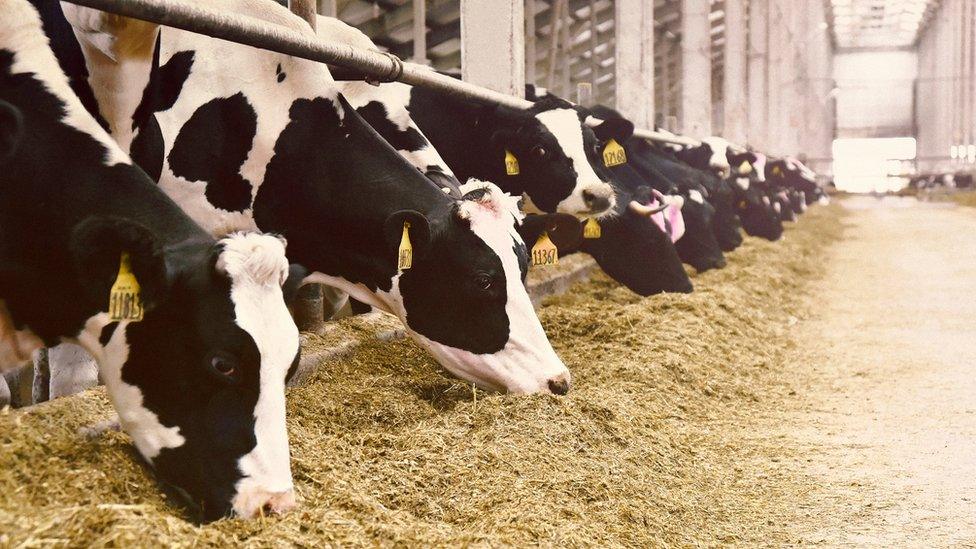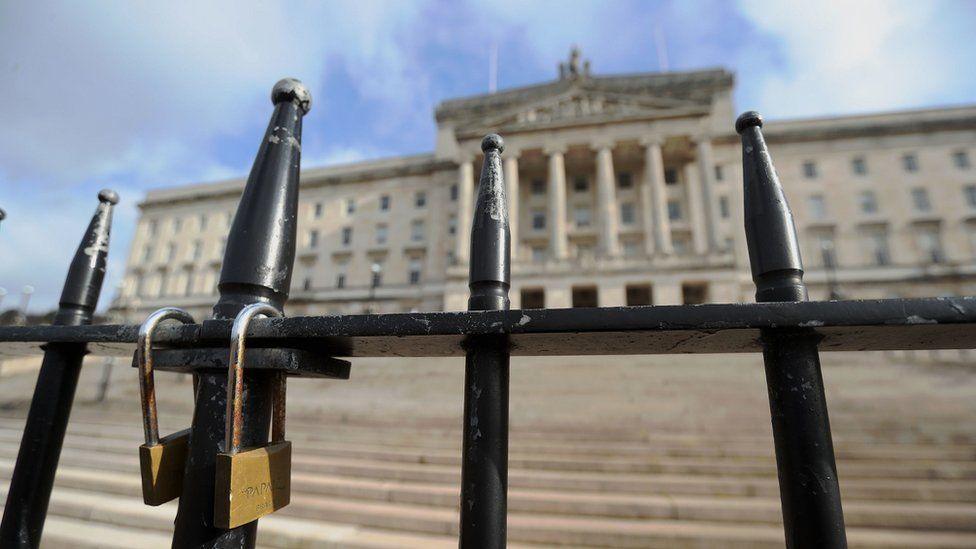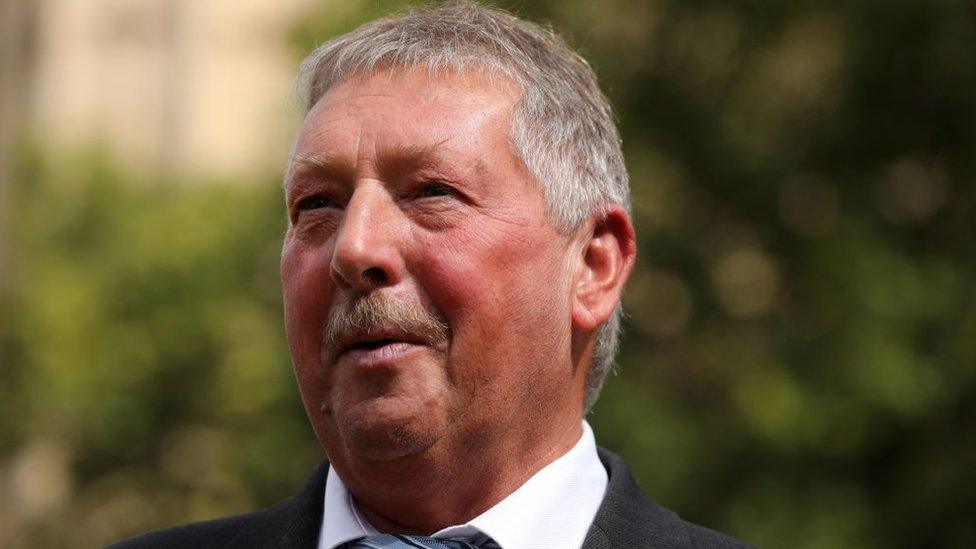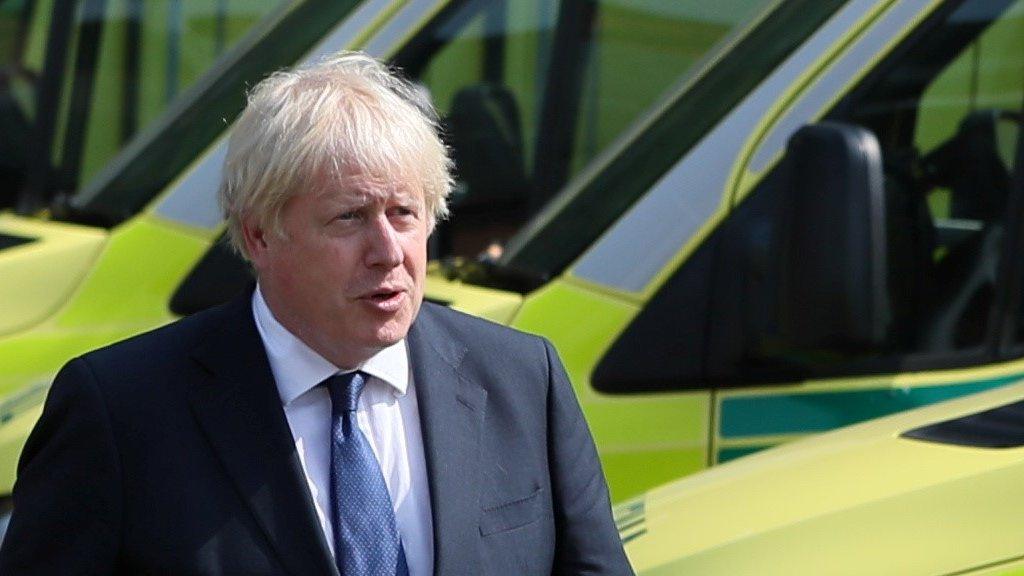NI Protocol: Dairy sector 'not exposed' to trade pressures
- Published

The NI Protocol is working for the local dairy sector, a senior industry representative has said.
Dr Mike Johnston, the head of the NI Dairy Council, warned London against changing the post-Brexit trading arrangements.
Westminster legislation is due to be tabled next week to allow ministers to unilaterally override parts of the protocol.
Mr Johnston warned "one size doesn't fit all" when it comes to the protocol.
Speaking to the Good Morning Ulster programme on Thursday, Mr Johnston said the local dairy industry was deeply integrated with the Republic of Ireland.
"In Northern Ireland we produce somewhere in the region of 2.5 billion litres of milk per year," he said.
"Of that, around 800 million litres moves south into the Republic of Ireland for processing. Those final products can be exported around the world to 80 countries," he explained.
"It's working for us and it's allowing our trade flows to continue."
The protocol is part of the UK's Brexit deal with the EU to ensure the continuation of frictionless trade across the Irish land border.
It does this by keeping Northern Ireland aligned with the EU single market for goods.
However, this means additional checks being placed on some goods moving between Great Britain and Northern Ireland.
In October, the EU proposed changes which it said would reduce the needs for checks and controls.
The UK government says these do not go far enough and is threatening to override the deal in UK law if the EU does not agree to more radical change.

The Northern Ireland Assembly has been unable to sit because the DUP has refused to nominate a speaker
Mr Johnston acknowledged that dairy companies are "not as exposed" as others to trade restrictions on goods coming from Great Britain into Northern Ireland and that the arrangements could be improved.
Opponents of the protocol argue that trade barriers have led to extra costs and unnecessary delays for businesses, and that it undermines the union between Northern Ireland and the rest of the UK.
The Democratic Unionist Party (DUP) is refusing to nominate a deputy first minister to the Stormont Executive in protest at the protocol.
Mr Johnston expressed concerns that tampering with the protocol could interrupt the "very integrated supply chain" across the Irish land border.
Providing a hypothetical example, he said that if wheat produced using pesticides banned by the EU was used as animal feed on Northern Ireland dairy farms, then the milk produced would not be permitted to cross the border.
He said: "We don't have the capacity in Northern Ireland to process all of the milk that is produced here."
Related topics
- Published7 June 2022

- Published18 May 2022
